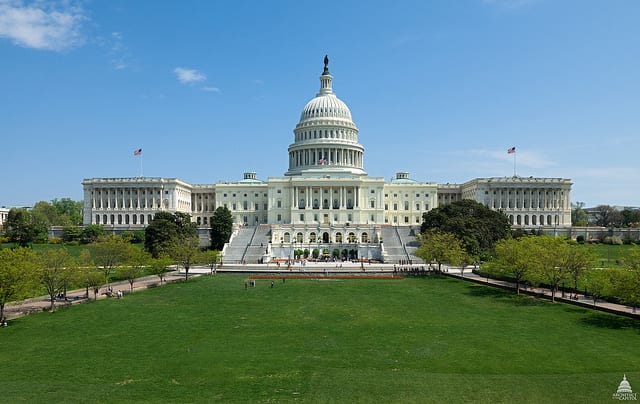Posted By: Nikki Meadows, PhD, 2017-18 ASHG/NHGRI Genetics & Public Policy Fellow
Buried within the legislation establishing funding for the National Institutes of Health for Fiscal Year (FY) 2019 (H.R. 6157) is a little-reported provision to protect the genetic privacy of immigrant family members. Congress often uses the annual appropriations bills to direct federal agencies on how to proceed on a particular activity or to commission a report about a particular topic. This provision, proposed by Representatives Marcy Kaptur (D, OH-09) and Katherine Clark (D, MA-05), is one such directive.

In April, the Department of Homeland Security (DHS) began enforcing an existing family separation policy with the stated goal of stemming what DHS and other related agencies perceived to be a rise in illegal immigration at the U.S.—Mexico border. As was widely reported in the media, children were separated from their parents or legal guardians at the border and placed in the custody of the Department of Health and Human Services’ (HHS’s) Office of Refugee Resettlement (ORR), while the parents and legal guardians were held in criminal detention. In response, many members of Congress and the general public demanded reunification of these families, and in June a federal judge ordered that the more than 2,500 children in ORR custody be reunited with their families.
Family Reunification Involved Genetic Testing
To help reunite young children with their families by the July 5 deadline, HHS began using DNA testing to verify parentage. However, HHS provided few details regarding the testing, such as who was being tested, which labs were involved in performing the tests, and what testing was being performed. Importantly, there was also a lack of clarity regarding whether individuals were consenting to such testing, how HHS was protecting individuals’ genetic privacy, and how the test results could be used.
The provision added by Reps. Kaptur and Clark was designed to address some of these concerns. It directs ORR to “ensure the protection of privacy and genetic material, data, or information of children, parents, and of all individuals being tested and their relatives.” It also requires consent prior to collection and sample destruction once testing has concluded.
ASHG Applauds Kaptur and Clark for their Attention to Genetic Privacy
ASHG was very supportive of this provision, and President David L. Nelson sent letters to Reps. Kaptur and Clark thanking them for their “leadership in advancing measures to ensure individuals’ genetic privacy as immigrant families seek to be reunified.” He wrote that “…an individual’s genome includes information on his or her risk for disease, their ancestry, and their relatedness to others, [so] it is important that we protect the genetic privacy of people tested.” He went on to further say that “genetic analysis should be restricted to the explicit purpose for which a person is being tested.”
ASHG’s support for this provision is the latest way in which the Society is championing measures to protect individuals’ genetic privacy. ASHG is a strong supporter of the Genetic Information Nondiscrimination Act (GINA), which among its provisions protects genetic privacy related to employment and health insurance, as well as a similar law in Canada. It also supports provisions in the 21st Century Cures Act strengthening participant privacy in research. The Kaptur/Clark amendment extends some privacy protections to those seeking reunification and ensures that federal agencies cannot use their genetic information for any purpose beyond reunification.
Nikki Meadows, PhD, is the 2017-18 ASHG/NHGRI Genetics & Public Policy Fellow. For more information on ASHG’s policy and advocacy programs, please visit the Policy & Advocacy webpage.
